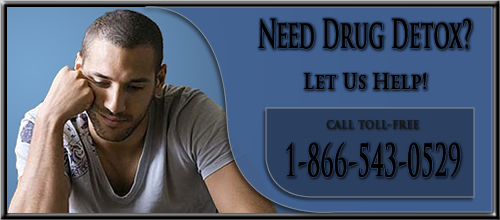Drug Detox
- Heroin Detox
- Cocaine Detox
- OxyContin Detox
- Marijuana Detox
- Crack Detox
- Meth Detox
- Xanax Detox
- Ambien Detox
- Vicodin Detox
- Percocet Detox
- Lortab Detox
- Hydrocodone Detox
- Opiate Detox
- Ativan Detox
- Methadone Detox
- Demerol Detox
- Medical Detox
- Drug Free Detox
- Rapid Detox
- Drug Substitution Detox
- Drug Weaning Detox

Drug Substitution Detox
Drug substitution detox is the process of replacing an illegal drug such as heroin with a longer acting but less euphoric substance, usually methadone or buprenorphine, which is taken under medical supervision. In some countries (e.g. Switzerland, Austria) patients may be treated with slow-release morphine where methadone is deemed inappropriate in the circumstances.
In Germany, Dihydrocodeine has been used off-label in drug substitution detox for many years; however it is no longer frequently prescribed for this purpose. Some formulations of buprenorphine are manufactured in pill form with the opiate antagonist Naloxone to prevent addicts from crushing the tablets and injecting them instead of taking them sublingually (under the tongue) while in drug substitution detox.
The driving principle behind drug substitution detox is that an addict will be able to regain a normal life and schedule while being treated with a substance that stops him from experiencing withdrawal symptoms and cravings, but doesn't provide strong euphoria. In many countries regulations require that drug substitution detox should be applied for a limited time only, as long as needed for the patient to consolidate his economic and psychosocial situation. (Patients suffering from HIV/AIDS or Hepatitis C are usually excluded from this demand.) In practice however only a small fraction of patients manage to attain abstinence.
Here is another way of looking at drug substitution detox. Have you ever been told that if you take a certain drug that it will help with symptoms of addiction? It happens to be only partially true. Yes, if you replace one drug with another, then the person will temporarily not use the original drug, such as methadone maintenance or Suboxone for heroin or OxyContin addiction, but it will never completely solve the problem.
Believe it or not, the same holds true when people are given anti-smoking drugs, anti-drinking drugs, anti-anxiety drugs, anti-psychotic drugs and even anti-depressant drugs. None of these drugs ever completely solve the addiction or cure the symptoms - they're only temporary treatments to relieve the discomfort.
Ultimately, for the individual to be considered "rehabilitated", he or she must be off of those drugs as well, and sometimes that can be just as difficult or even more so than the original drugs they were on. Many drugs given as a form of drug substitution detox these days, especially of the mental variety, actually have very severe side effects such as increased suicidal thoughts, irrational behavior, decreased libido, diabetes and dependency as well. Withdrawal from some of these drugs can cause a temporary psychotic break and even a seizure.
Many medications prescribed in drug substitution detox are meant to address the body's "chemical balance" issues caused by drug use. However, by forcing it in one direction or another with a new drug this very natural process is still damaged and incorrect. What the recovering addict truly needs is a drug free detox and a long term drug free rehabilitation program. This combination of treatment allows enough time for the body to start to readjust its own natural balance and proper nutrition and exercise greatly increases that ability.
